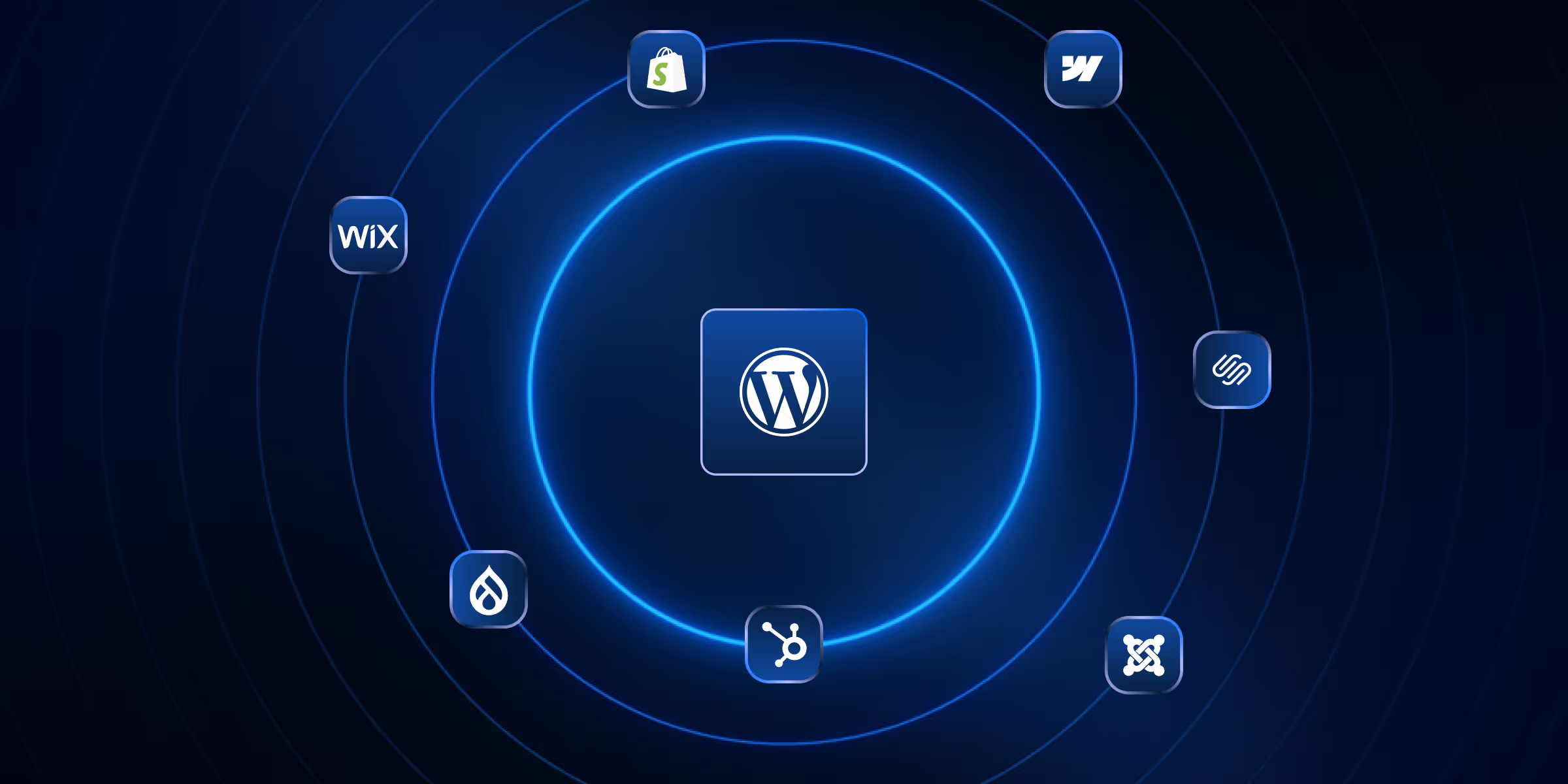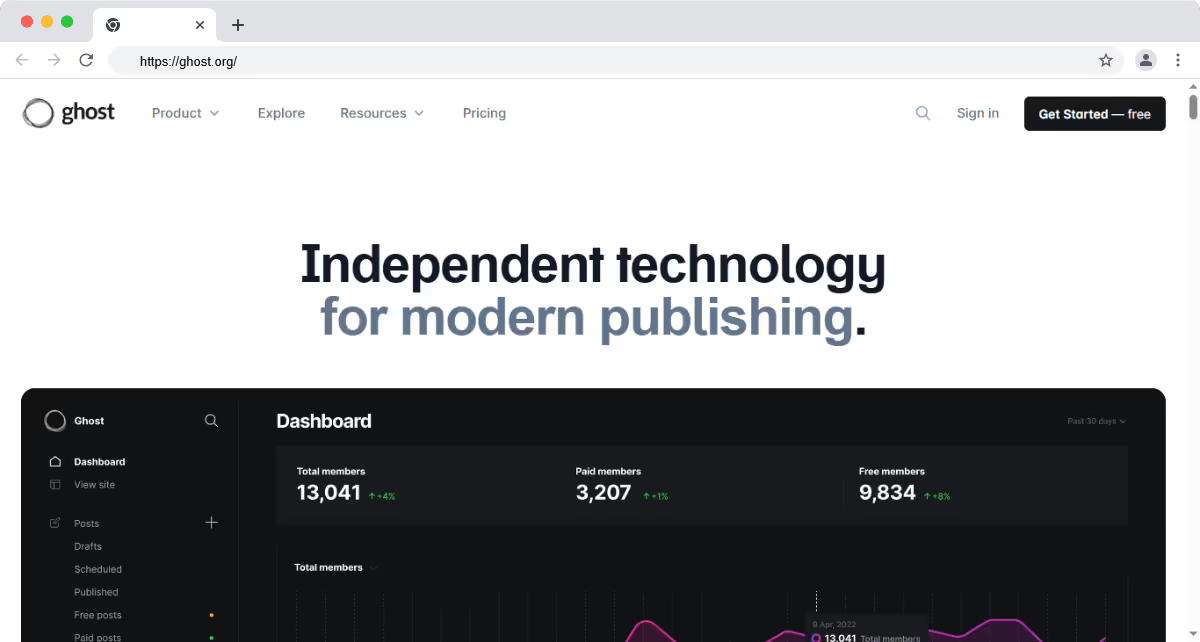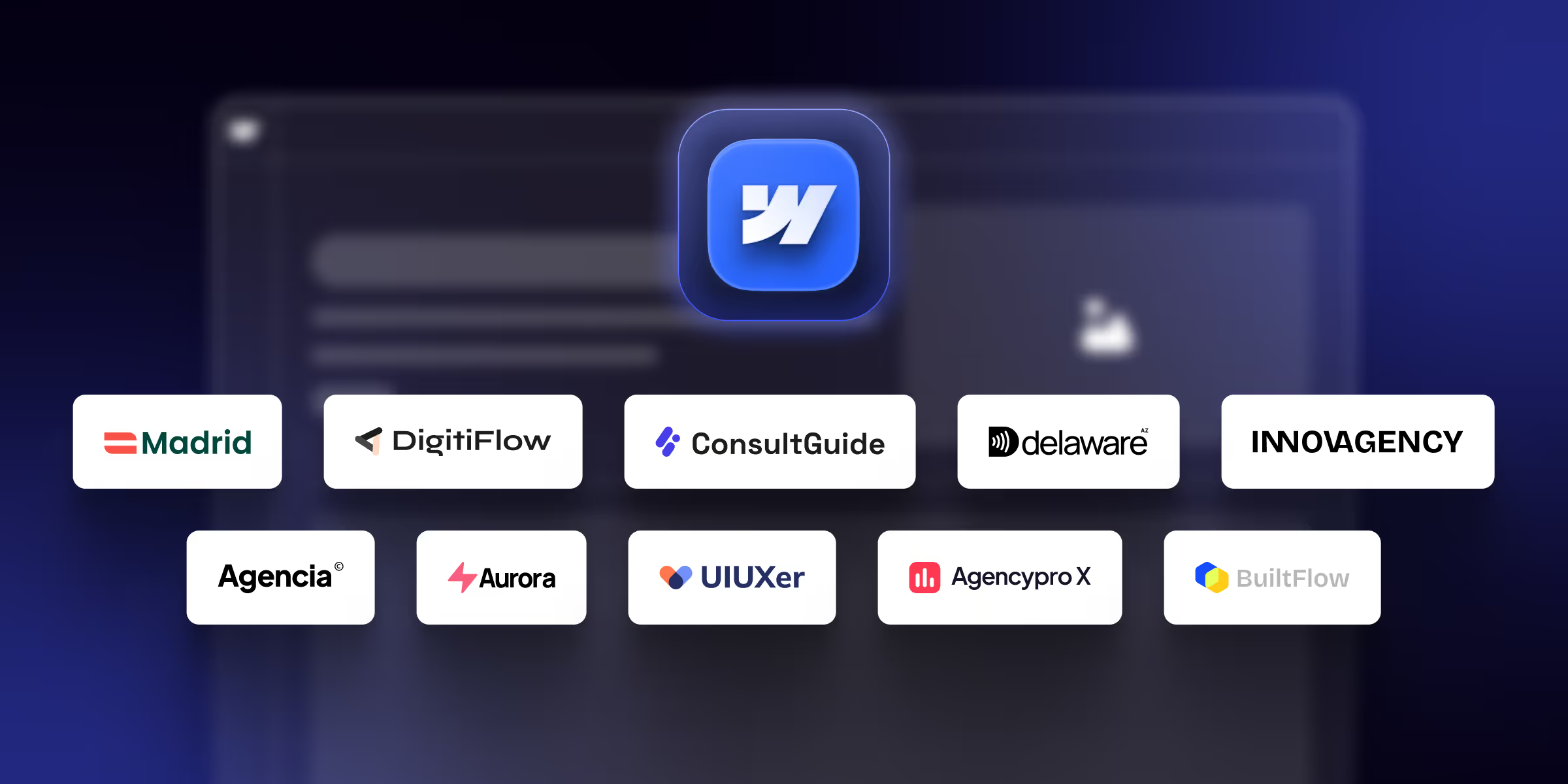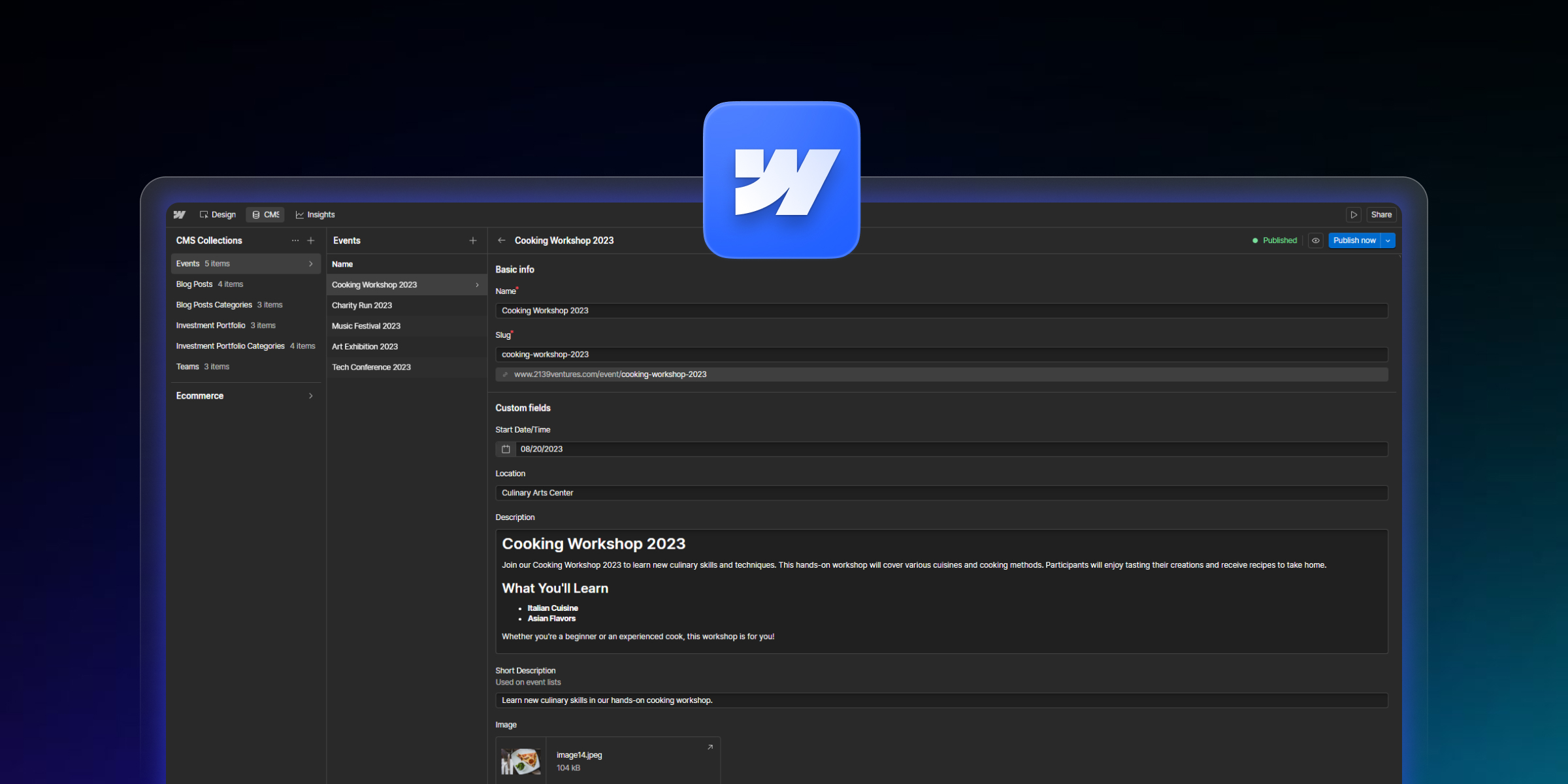SaaS Webflow SEO: Complete Guide for B2B Software Companies
Webflow SEO for SaaS with our complete guide. Optimize for conversions, technical SEO, content strategy, and lead generation. Expert tips for B2B software companies.

Actionable insights to improve SEO, speed, and conversions

WordPress is the leading player in the industry, but it's not for everyone. WordPress has long been the go-to content management system (CMS) for bloggers, businesses, and developers. Powering over 40% of all websites globally, it offers a versatile platform with thousands of themes and plugins.
Many users find WordPress overwhelming due to its complexity, especially for beginners. Constant updates, the need for third-party plugins to extend functionality, and potential security risks often push people to look for other options.
Are you searching for the best alternatives to Wordpress that can meet your needs? Here are 5 modern, powerful, and user-friendly WordPress alternatives & competitors in 2025.
When searching for the best top alternatives to wordpress for building your website, it's crucial to evaluate platforms based on your unique needs. Here are some essential features to consider:
Also, consider your website's primary function. A portfolio site has very different needs from an e-commerce store or a membership blog.

Webflow is widely regarded as the best alternative to WordPress. Webflow is a visual web development platform that bridges the gap between design and code. It’s perfect for designers and agencies who want full control without writing HTML, CSS, or JavaScript manually. Webflow has built-in SEO, security, eCommerce capabilities, and integrations with community-built 3rd party plugins. With the help of Webflow, you can build professional business websites. In upcoming years, Webflow has been steadily expanding into the e-commerce market, introducing features like membership functionality, advanced logic, and more. Beyond just a website builder, Webflow also provides a fast and secure hosting service.
Must Read: Webflow Pricing Explained: Everything You Need To Know
Must Read: Webflow vs WordPress

Wix is the second important alternative to WordPress. Wix is a website builder that is easy to use and comprises almost all the elements needed to create an online available. Wix offers an intuitive drag-and-drop builder, making it ideal for users with no technical experience. Wix offers a wide range of templates for various purposes that can speed up the website creation process.

Squarespace is an all-in-one website builder also known for its beautiful, minimalist templates and functionality. It’s perfect for creatives who want to showcase their work elegantly. Squarespace provides a domain name, hosting, design, email marketing, and support.
Must Read: Webflow vs Squarespace

Shopify is the leading WordPress alternative for online eCommerce stores. Shopify is the market leader in e-commerce, trusted by over 1 million businesses. It offers robust tools for managing products, orders, and payments. Shopify is a user-friendly tool that can help to speed up the process, offer various payment options, and more.

Ghost is a minimalist CMS built specifically for writers and content creators. With the help of Ghost Platform, writers can publish their content. It offers powerful publishing tools and built-in membership monetization. Ghost offers a clean, distraction-free writing environment so that you can focus on what matters most: your content
Building and customizing your website should be easy with all of these WordPress alternatives.
Yes, platforms like Wix and Webflow offer free plans with basic functionality. However, they usually include ads and limited features.
Wix and Squarespace are considered the most beginner-friendly due to their drag-and-drop editors and pre-built templates.
Yes, most platforms offer tools or services to help you migrate your content from WordPress, though some manual adjustments may be necessary.
Platforms like Webflow, Ghost, and Shopify offer strong SEO capabilities. While WordPress is powerful with the right plugins, these alternatives simplify SEO with built-in features.

Webflow SEO for SaaS with our complete guide. Optimize for conversions, technical SEO, content strategy, and lead generation. Expert tips for B2B software companies.

Find the best Webflow agency templates for your business in 2026. Compare features and pricing, and find the perfect match for your business.

Learn how to import content into Webflow CMS with 4 proven methods. Step-by-step CSV import tutorial, bulk updates, field mapping, and migration strategies.
Quick Turnaround. No Contracts. Cancel Anytime. Book a 30 minutes consulting call with our expert.